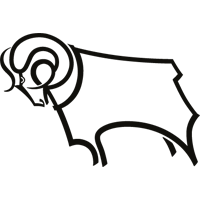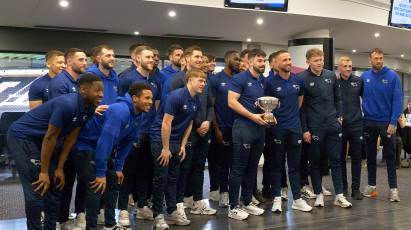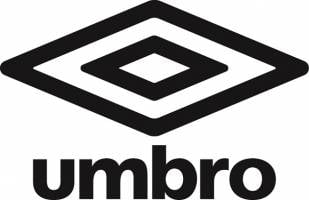Phil Gee’s big break in professional football came in Derby County’s 1985/86 campaign under Arthur Cox, as he went from a painter and decorator to promotion-winner inside just eight months.
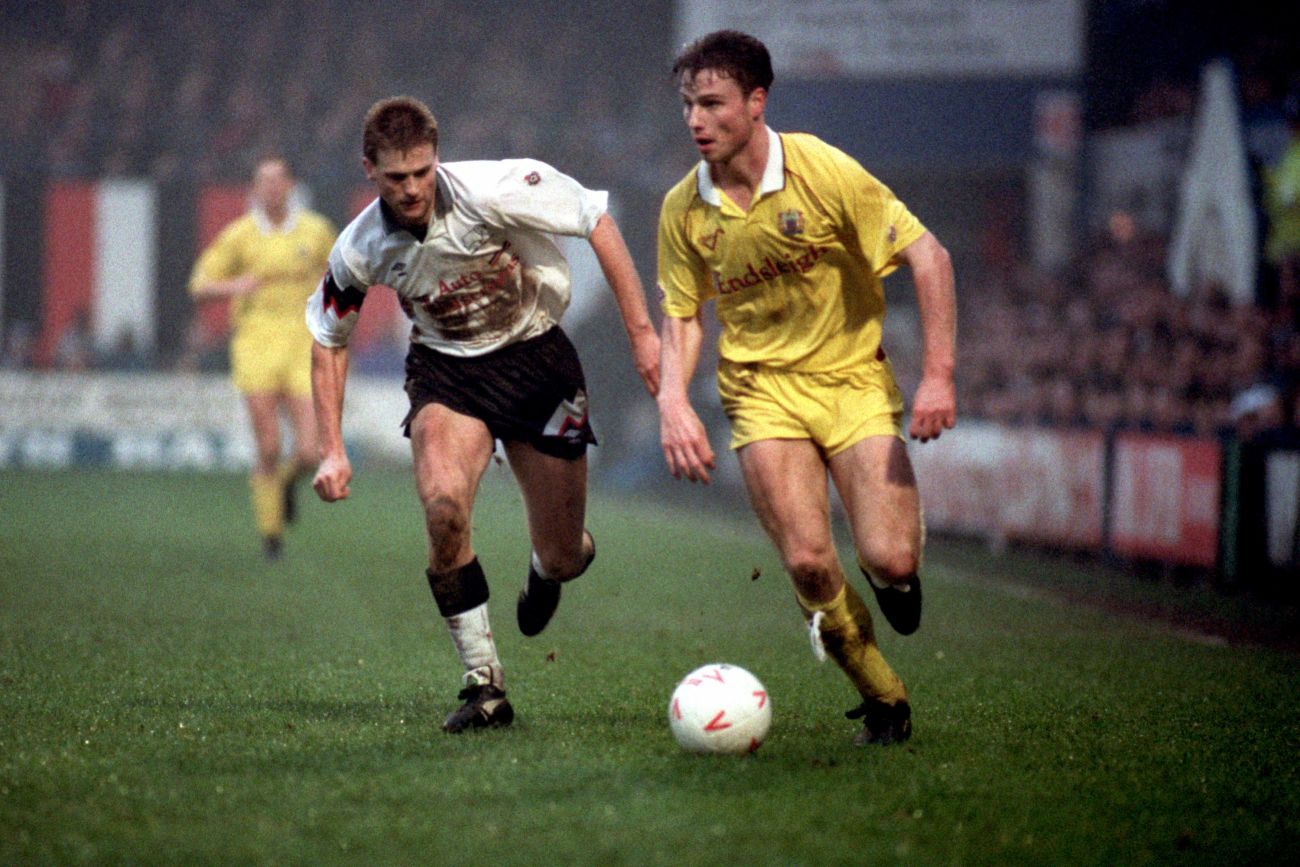
Signed for just £5,000 from local non-league side Gresley Rovers in September 1985, Gee would go on to play a defining role in Derby’s rise back to the big time.
Financial difficulties off the pitch had contributed to Derby’s relegation to the third tier in 1983/84 – but Cox quickly set about putting things right after joining from Newcastle United in 1984.
He steadied the ship in his first campaign in charge, before masterminding back-to-back promotions from the Third Division to the First Division in 1985/86 and 1986/87.
Gee was plucked from non-league obscurity after being recommended by former Derby duo David Nish and Roger Davies.
A punt was taken on the frontman - and he grasped the chance with both hands.
Make no mistake about it, he wasn’t going to let the chance pass him by after believing the opportunity to be a professional footballer was nothing but a pipe dream.
Gee, who is now 55, went on to play 152 times for Derby in all competitions, scoring on 31 occasions, between 1985 and 1992.
His story in reaching the top with the Rams isn’t ordinary and certainly is a fascinating one.
Speaking to RamsTV Meets, Gee said: “I was playing on a Saturday afternoon, Sunday morning and Sunday afternoon before I went into non-league.
“I played at school, as you did, and joined a Sunday team. I actually scored 75 goals in one season but still didn’t get picked up by a club, nor from playing for the district team too.
“When I had to start work for a living, I thought my chance had gone. When you get to 20, you think you’ll just play non-league and that’s it.
“In a blink of an eye, it all changed.”
So, how did a striker who had played just a handful of games for Gresley Rovers come to Derby’s attention?
As it turned out, there was a strong Rams theme which led to his arrival at the Baseball Ground.
“Whilst I was playing for my Sunday morning team, Gresley Rovers had a player called Steve Essex who went to Burton Albion,” Gee explained.
“He recommended me to their manager, Frank Northwood. From there, after he watched me, I signed and did pre-season with Gresley.
“At the time, David Nish was the Chairman and Roger Davies was the first-team coach. After five games, I was asked if I’d like to join Derby!
“I understand that David Nish recommended me to the club and after they watched me in a game, which actually finished 0-0, I got a call asking me if I wanted to sign. I thought it was a joke, to be honest.”
He added: “On the following Monday, at the start of September 1985, I started professional football for real. I remember it was all very strange having my photo taken; I was used to watching players have it happen to them, so now the boot was on the other foot.”
Back in those days, professional players didn’t have agents – never mind non-league footballers.
Gee recalls that the contract negotiations didn’t take up too much time ahead of putting pen-to-paper.
“The contract negotiation period wasn’t long; I can tell you!” Gee joked.
“I think if they’d asked me to pay them, I would have. I am grateful for what that connection with Derby, David and Roger, did for me. Further down the line, David recommended me to Brian Little when I signed for Leicester City as well.”
He added: “There was an increased spotlight on me overnight. Derby has great supporters and a passionate fanbase. I can walk around in the area now and supporters will stop and talk to me in the street or in the pub.”
Gee, fortunately, was able to ease his way into life as a professional.
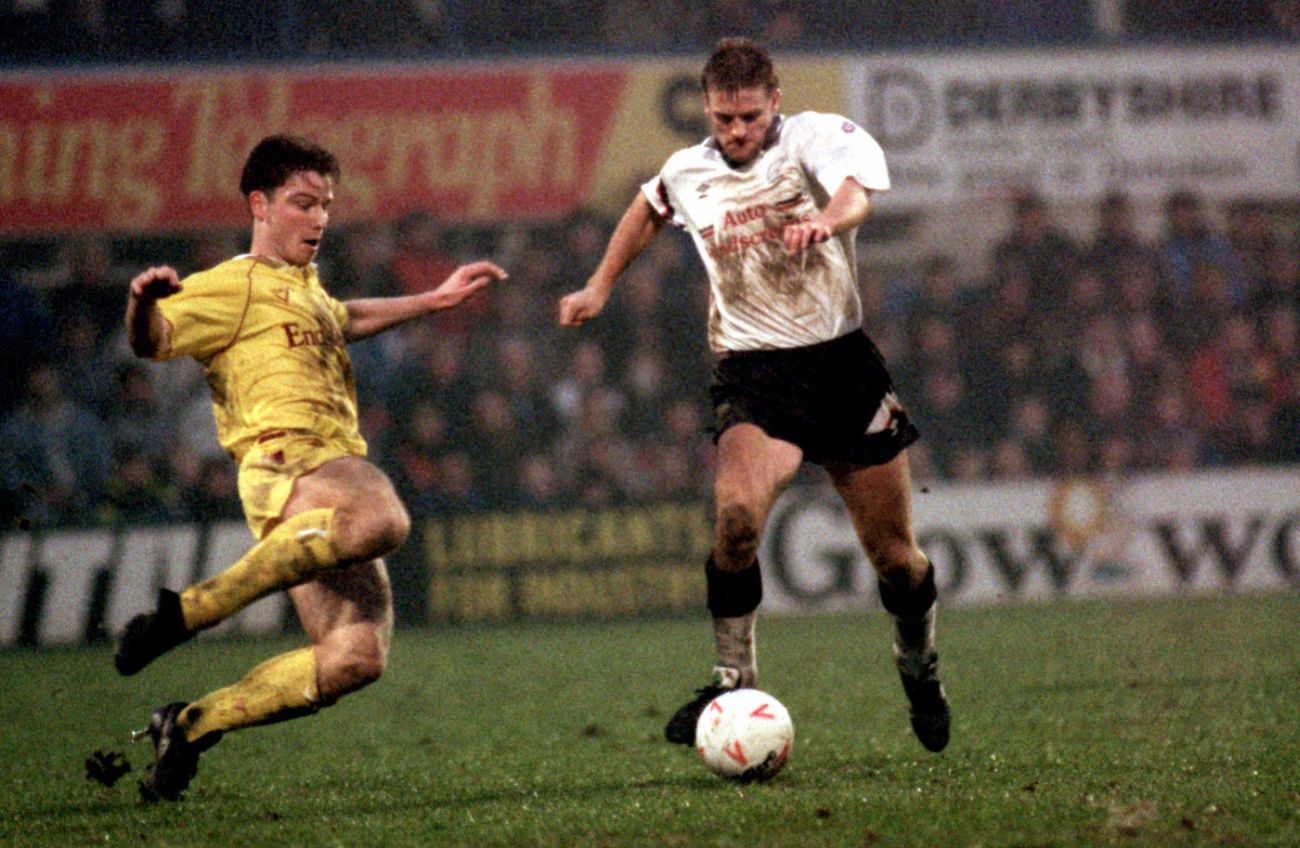
He quickly established in Derby’s reserve side, managed by Roy McFarland, in the Central League as he began the transition from part-timer to professional.
As the goals began to flow, he managed to edge himself closer to the first-team scene.
“I went straight into the reserves and we had a great side with a really good spirit,” said Gee.
“We had Eric Steele, Paul Blades, Dick Pratley, Steve McClaren, Jeff Chandler, Michael Forsyth and even Geraint Williams to name just a few players.
“We clicked as a reserve side and Roy McFarland was in charge, with Arthur Cox being the first team manager.
“My first game for the reserves was at Barnsley away, I remember it well. We had trained at Moorways in the afternoon and I was knackered before we even got there! Full-time training was very different to doing an hour in the gym at non-league.”
“I managed to score a few goals in the reserves and there were a few mentions about being involved in the first-team set-up,” he added.
“The team was going well in the Third Division, but in any walk of life if you do well then you put yourself up for promotion.”
Gee’s chance to impress came on 12th March 1986 against Walsall, ironically his hometown team, at the Baseball Ground.
Derby were 3-1 winners on the day and it was a step in the right direction on a personal basis.
“I got my chance in the March,” he said.
“Bobby Davison was injured so I played and although I didn’t score, we won 3-1.
“I wasn’t really involved until the last few games of the season. By that stage we had more or less won the Central League and I had got a few goals along the way.”
As Gee says, he wasn’t involved with the first-team, other than that cameo against Walsall, until the latter stages of the campaign.
Promotion was close, and so was Gee’s big moment.
An outing off the bench in a 1-1 draw at home to Doncaster Rovers in early May followed, before an injury to Geraint Williams saw him come off the bench in the penultimate game of the season.
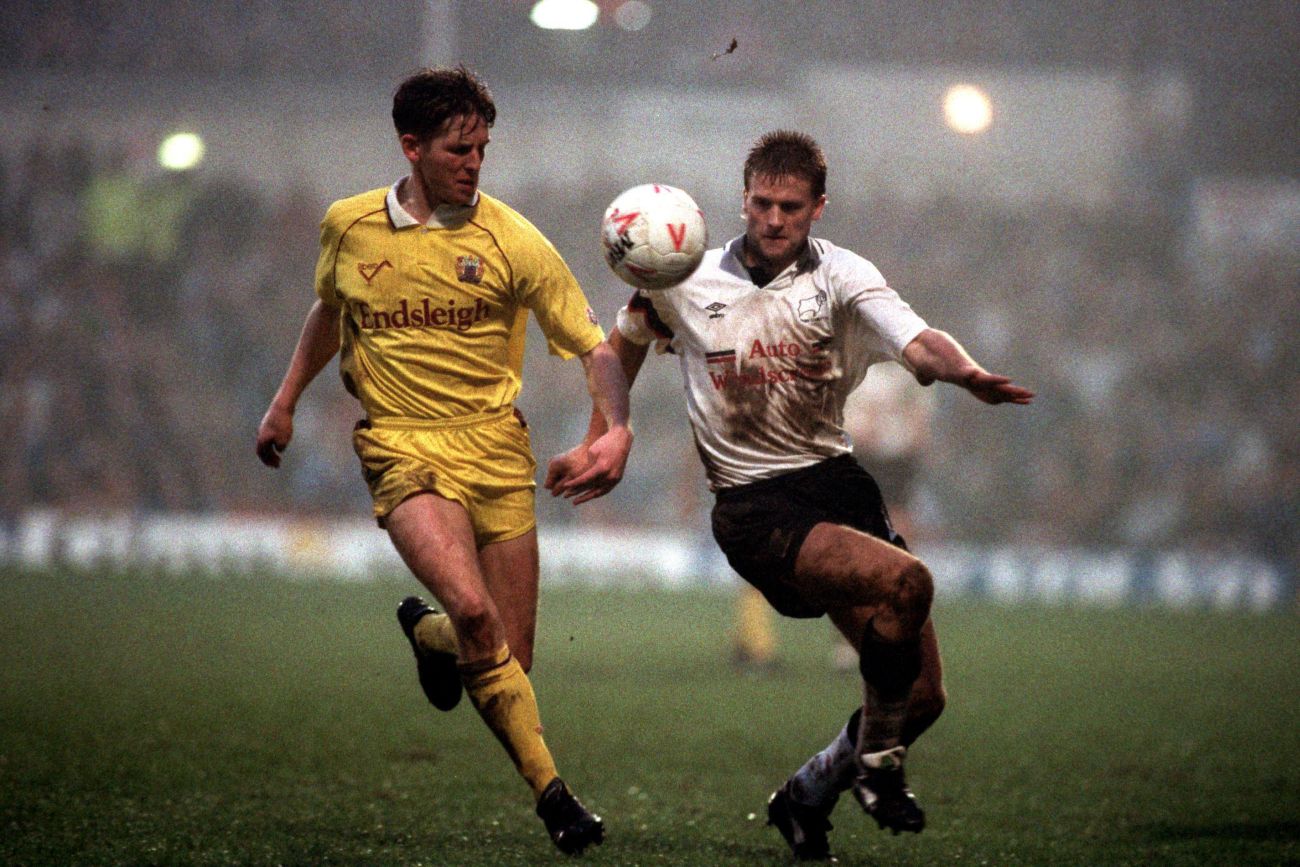
Derby were at home to Rotherham United and victory would seal promotion.
Not only did Gee come off the bench, he netted his first-ever professional goal by opening the scoring in a 2-1 victory.
Rotherham managed to equalise, but a Trevor Christie penalty got Derby over the line on a memorable evening at the Baseball Ground.
“I wasn’t involved from the start, but Geraint Williams was forced off and I came on,” Gee recalled.
“I remember the Baseball Ground pitch wasn’t in the best state at that time! It was pretty heavy on the legs.
“I managed to score. Some people think I was offside, but Trevor Christie didn’t touch on a long ball over the top so I was alright. There was no whistle, so I went through on goal and I managed to slice the ball into the top corner!
“The ball bounced as I went to shoot, which is why it looped up. We were on our way at that point, but Rotherham equalised and you could have heard a pin drop.
“We managed to pull through though and we got a penalty, which Trevor Christie slotted home. I remember the phrase from the local radio; cool as custard.
“I think that marked my arrival in the sense it was my first goal. I remember going to Darlington a few days later and although we lost, I did score in that match as well. After that we were at the end of the season.”
On the celebrations that followed, he added: “After the game was enjoyable too, walking around the pitch and then in the dressing room. We had a few drinks in town!
“It was some first season with Derby and in many ways, it was just a blur. I’ve still got my scrapbook though to remind me of the games I played and scored in.”
Step one of Derby’s rise to the top table of English football was achieved.
Next up was the small matter of the Second Division.
As it turned out, the Rams needn’t have worried. They romped home to the title with six points to spare.
Gee’s role became more prominent and he was named in the starting line-up from the fourth game of the campaign onwards.
He netted 15 goals in the process as people began to sit up and take note, and he was also seeing off competition for his place in the side.
“It was important to get promoted and start the rise back,” he said.
“We had been on the edge of bankruptcy at one stage, before I signed. I remember Stuart Webb (former Director) doing an interview saying we wanted to consolidate in the Second Division; I think that lasted about a week!
“By the time we came back for pre-season, we had signed Mark Lillis as Bobby Davison’s strike partner from Manchester City. Mark was a very good player and I think I just accepted the situation, having come from non-league and being young, I didn’t expect to be playing every week.
“Mark got injured and I ended up in the team and scoring goals. From six to eight games in, I felt things were going well and I got on a run. It wasn’t regular goals wise, but it was enough to keep Mark out when he came back fit.”
Bobby Davison, a true Rams legend, was Gee’s partner in attack and he knew a thing or two about putting the ball in the back of net.
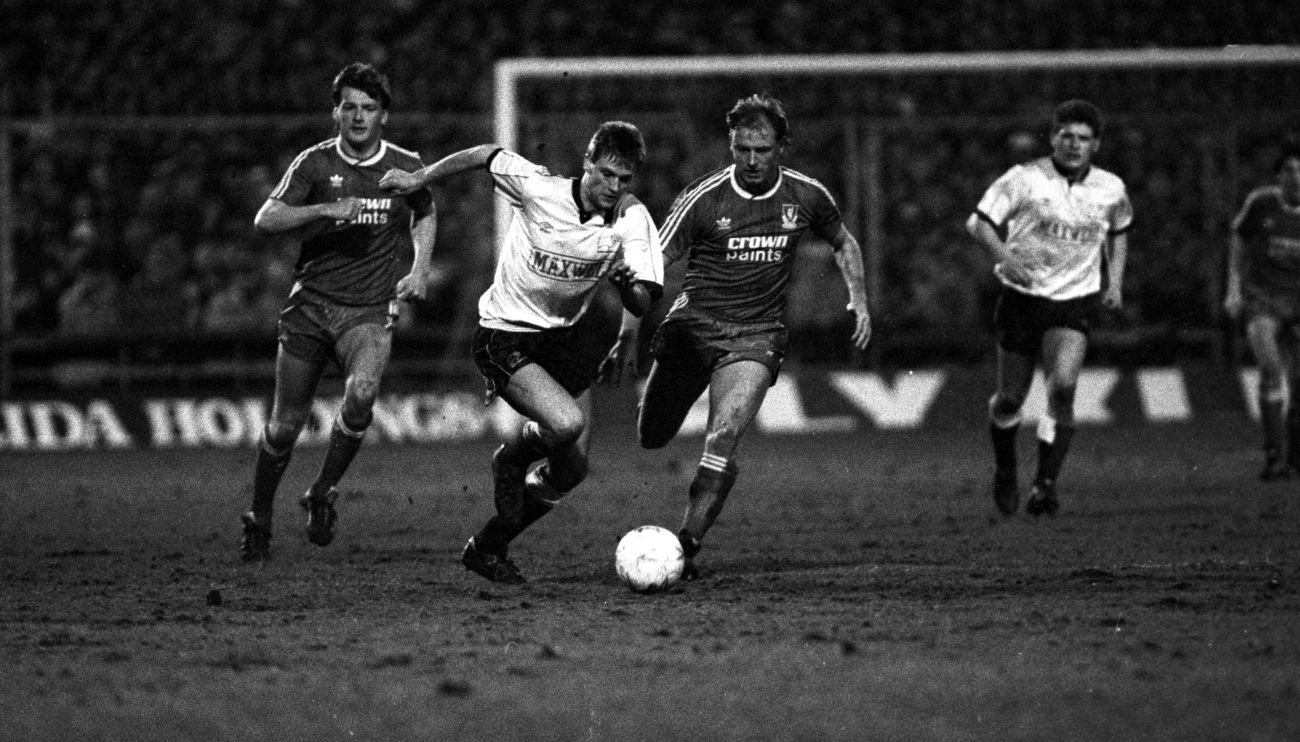
He scored 106 goals in two separate spells at the club and, like Gee, he made his move to Derby from lower down the football pyramid when he arrived from Halifax Town in 1982.
“I think myself and Bobby linked up quite well,” Gee said.
“We were similar as players and we probably ended up chasing the same ball at times, but he ended up being the hold-up player between us. He was more experienced, but Bobby knew the journey I was on as he came into football from non-league.”
Back to the promotion campaign of 1986/87 and, despite a slow start to the campaign, there was no stopping Cox’s side.
After losing to Oldham Athletic at the Baseball Ground on the opening day of the season, the Rams didn’t lose again on home turf during the campaign and between January and April they didn’t taste defeat for 13 matches.
On top of that, 11 away victories set a new club record at that time.
The record-breaker came at Sheffield United, before a 10,000-strong Derby support at Bramall Lane – and Gee got the winner in a 1-0 victory.
The three points took the Rams to within touching distance of promotion.
“We lost the first game against Oldham, but we managed to get ourselves on the rise again and the team spirit pulled us through I think,” Gee recalled.
“I remember the win at Sheffield United set a new club record for away wins in the season.
“I managed to break through and fire the ball through John Burridge’s legs in goal. I didn’t mean to nutmeg him, but it happened. It was amazing to score in front of 10,000 Derby fans.”
Promotion followed a week later as Derby defeated old rivals Leeds United 2-1 at the Baseball Ground.
Strike duo Gee and Davison got the goals on another unforgettable day as successive promotions were achieved.
“We managed to beat Leeds the following week and I got a goal then as well,” said Gee.
“I managed to run from the halfway line and into the box, off I went again, and scored. It wasn’t the best shot, but it went in. That secured back-to-back promotions in front of a full house. The celebrations were something else.
“We were told not to go out as we had a game at Reading on the Monday. I ended up having a few drinks and was persuaded quite easily to go out. Arthur fined me in the end, probably because we lost 2-0 at Reading, and I had a telling off from him in the office!”
Derby’s rapid return to the top-flight meant a season of struggle was almost inevitable.
Gee was a regular, but the Rams struggled for goals – he finished as the joint-leading goalscorer with six alongside John Gregory – and Davison departed for Leeds United.
For Gee more than anyone, playing at the top level was an eye-opener and a reminder that not every season ended in celebration.
However, safety was secured and that gave Derby a platform to build on.
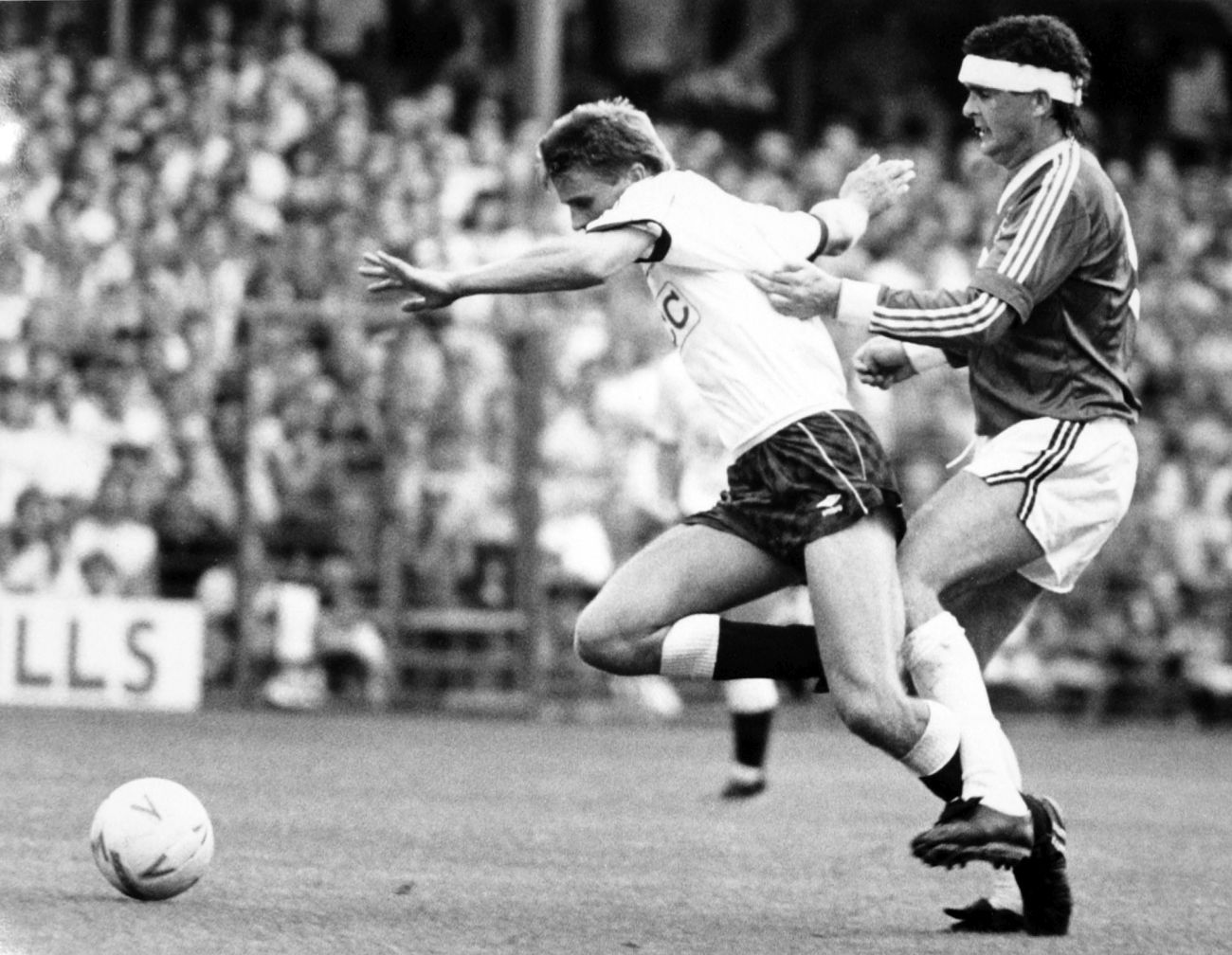
“It was nice to be in the big league, but I think I kept my feet on the floor and tried to be humble,” he said.
“It was incredible from being in non-league to getting back-to-back promotions to the First Division.
“The pace was a lot faster, so it was a step up. The players were thinking quicker and sharper. We ended up selling Bobby Davison during the season too. I finished as the joint-top goalscorer with six goals, which wasn’t great, but we stayed up and that was our aim.”
The 1988/89 campaign saw the arrival of Dean Saunders for £1 million who, effectively, displaced Gee – while Paul Goddard and Trevor Hebberd also bolstered the ranks.
Derby finished in fifth place and Gee’s game time was limited to 12 appearances in all and a single goal in a home win against Arsenal.
“The following season, 1988/89, we finished fifth in the table but I didn’t play much,” he said.
“My only goal was the winner against Arsenal at the Baseball Ground in the November.
“Paul Goddard was injured so I came into the side. I managed to smash the ball into the top corner with a first-time strike; we beat them twice that season, but they still won the league.”
Gee’s game time over the subsequent seasons was limited to say the least; eight appearances in 1989/90 (with one goal) and a further two outings in the 1990/91 campaign (with no goals) as Derby were relegated to the second tier once again.
His thirst for first-team football was still strong, but Cox wasn’t willing to let him out on loan as he still valued having him as part of his squad.
The 1991/92 season actually saw Gee get more game time and he played 19 times, scoring once in an away win at Swindon Town.
However, Cox was shuffling his pack and in March 1992 both Gee and Ian Ormondroyd moved on to Leicester City - with Paul Kitson moving the other way.
By this time, Marco Gabbiadini had also joined the Rams’ frontline and Tommy Johnson arrived soon afterwards.
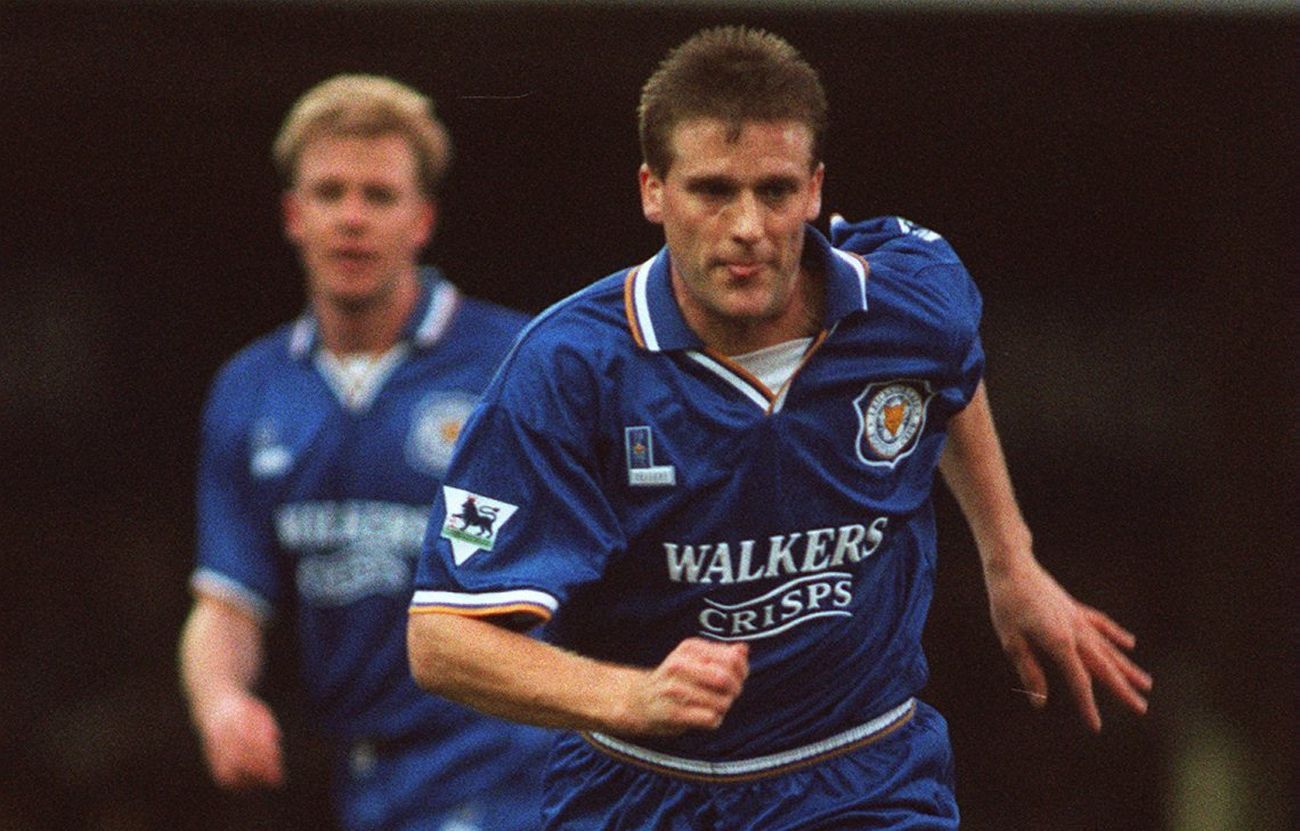
Gee recalled: “As I wasn’t playing I did ask the gaffer about going on loan, but Arthur didn’t want that and I accepted it.
“Then, one day after training, I got a call at home from Roy McFarland. I was asked to come to the ground to see Arthur and I thought straight away ‘I haven’t done anything wrong’.
“I was informed Leicester City wanted to sign me and after a chat with Arthur, he told me to talk to them. I went with Ian Ormondroyd to see Brian Little and we both signed; Paul Kitson went the other way, but I didn’t know about that.”
He added: “Ironically, I scored against Derby at the start of the 1992/93 season at Filbert Street. I got two goals in a 3-2 victory; I think I wanted to show Arthur that I could still do it.
“Then, In the 1993/94 season at Leicester, we got to the Play-Off Final against Derby, but I wasn’t involved. Some lads who weren’t fit previously got the nod. It was great to be promoted, winning 2-1 late on, but it was difficult for it to be against Derby.”
Cox was the man that gave Gee his opportunity to make it as a professional and, as a result, the former striker is forever grateful to the former Derby boss.
Many would regard the now 80-year-old as ‘old-school’ and Gee admits he loved every second of playing under the man who oversaw over 450 matches as the Derby boss.
He said: “I was around 20 at the time I joined and it was frightening really.
“The managers I had played for before were quite mellow, whereas Arthur was very regimented. He was very consistent in what he did and if you did well, he stuck to the same routine.
“So much so, I remember we’d had a bad run at one time and I made the teas on the Friday after training. We won, so I had to make them every week after that.
“Arthur was fair in the sense that if you did well for him, he would stick by you. But he was also firm as well, but very fair.”
Want to watch more from Phil Gee and find out more about his playing days with Derby County? Head watch the full RamsTV Meets interviews embedded in this article.


 3/1 To Win
3/1 To Win